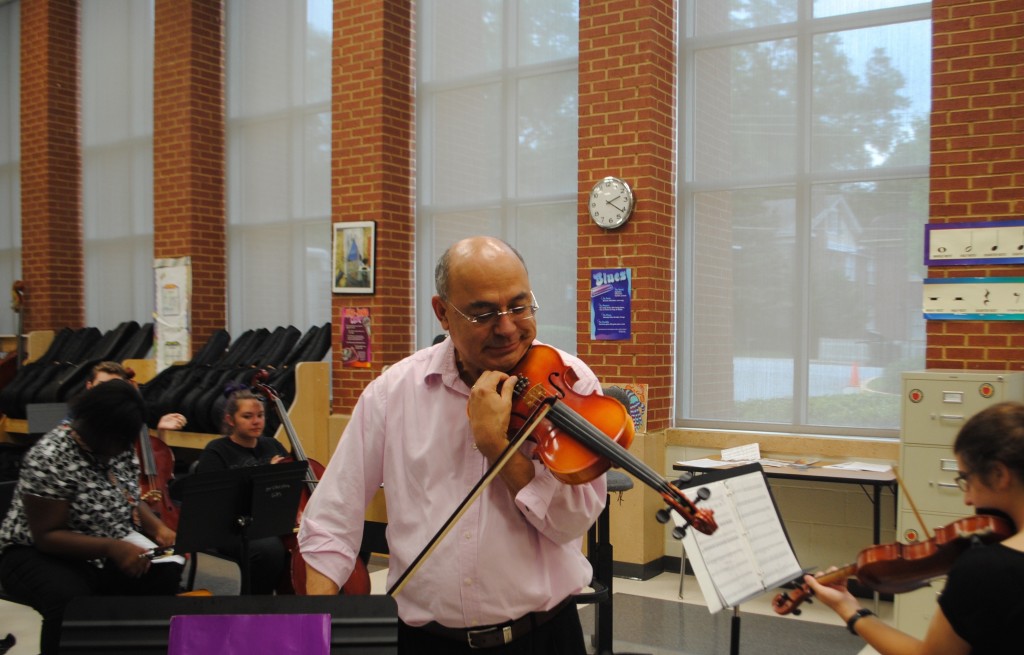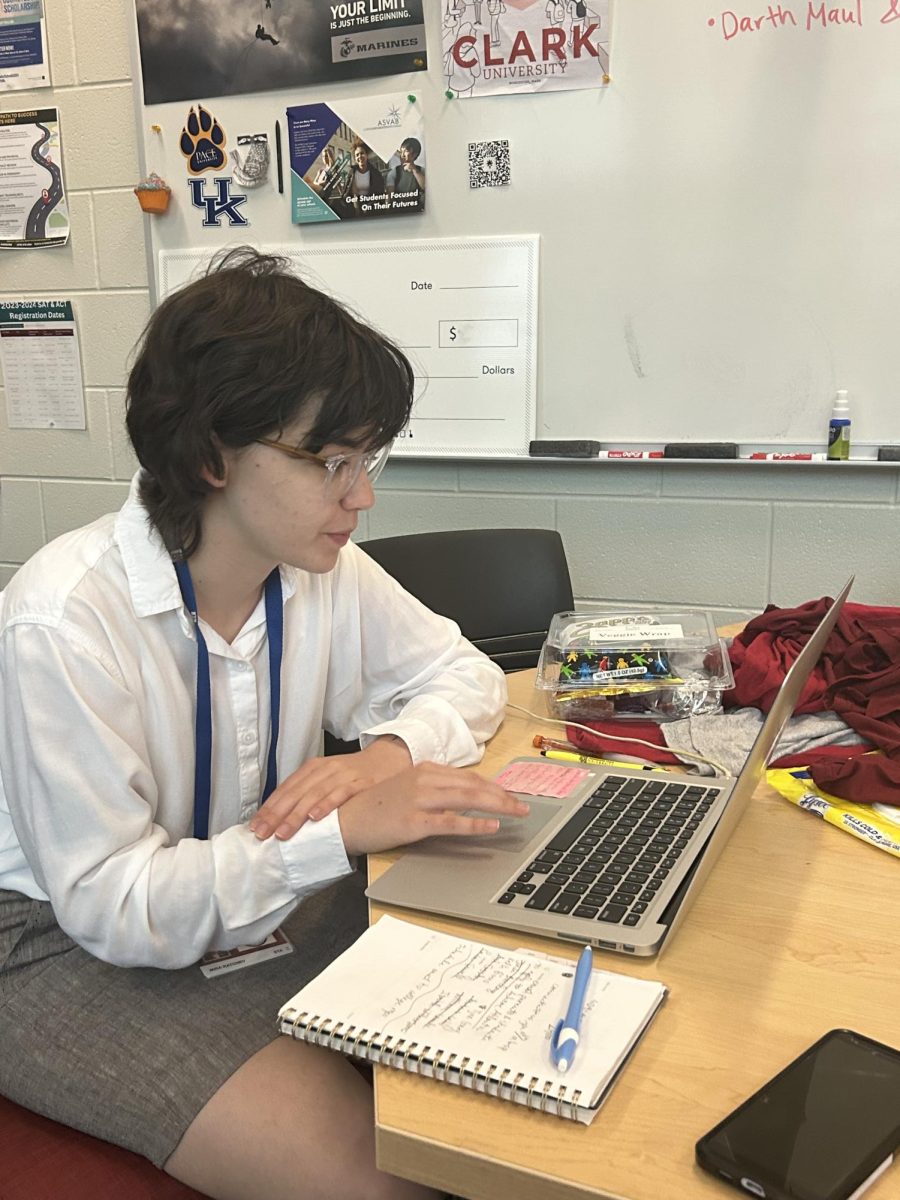
Sophomores, juniors and seniors alike have been expanding and exploring their interests as Grady employs a new advisement system that places students in homerooms based on extracurricular interests.
“I’m really enjoying having the opportunity to use advisement to improve in my [speech] event,” said sophomore Liliana Chanler, who is enrolled in the speech and debate advisement class. “Especially since I have more time to grow closer to my teammates.”
This homeroom system has its roots in the requirements of the Georgia State Department of Education, which mandates that all students have advisement 90 minutes a week. In years past, Grady has overlooked this requirement, prioritizing instructional time while limiting advisement to one 60-minute section each week. At the end of the 2015 school year, however, Superintendent Meria Carstarphen voiced a desire for APS to be in compliance with the regulation across the board. This led to the additional 30 minutes.
When Grady Registrar Chinaester Holland was notified of the mandate, she suggested that Grady allow students to choose their own advisement through an online request form. The goal of this new system was to strengthen advisement by pairing students with teachers with whom they already have a connection.
Under the previous advisement system, the school placed students with peers in the same pathway. Students generally remained in that advisement teacher throughout all four years at Grady.
Willie Vincent, assistant principal for 12th grade, was instrumental in implementing the new advisement, Principal Timothy Guiney said. Vincent visited nearly every class on the first day of advisement.
“Students looked like they were having the times of their lives,” Vincent said. “Art students were doing art, robotics students were doing robotics. It was just the greatest thing in the world.”
According to Vincent, during second semester last year, the Grady teachers overwhelmingly chose a once-a-week, 90-minute advisement. Other choices included twice-a-week for 45 minutes or 3-days-a-week for 30 minutes. Vincent also said this decision would allow enough time for a standardized testing window suggested by Instructional coach Byron Barnes.
Not all students, however, are involved in a program or extracurricular activity at Grady, so many students have opted instead to be in a general advisement. Junior Natalie Perez is in English teacher Gary Hardy’s general advisement, and she doesn’t feel as positively about the new system.
“Unless you’re in a specific advisement that’s actually productive, then it’s pretty much just an hour and a half of wasted time,” Perez said.
Vincent said that when he walked around the school during the first official advisement class, no students were in the hallways or the courtyard for the entire 90-minute period.
“It was the wildest experience, because for those 90 minutes, you could tell that most students were really where they wanted to be,” Vincent said.
Administration did not expect all students to submit the online advisement request form, although 625 students sent in their requests. Vincent spent a portion of his summer carefully sorting those who did not make a choice into advisement sections.
Vincent began the process by looking at each student’s individual schedule. Vincent tried to match students with teachers that they work closely with. This in turn made advisements more productive, as students joined homerooms that correlated with after-school-activities. Vincent used orchestra as an example, saying that if an orchestra student hadn’t chosen a homeroom online, that student would have been placed in orchestra teacher Sergio Rodriguez’s homeroom.
Rodriguez spends his advisement period working with most of his orchestra students. He thinks that the new advisement system will benefit Grady’s orchestra program.
“I get to use this time to tutor them privately if they need extra help,” Rodriguez said. “This new system is definitely an improvement [on] last year.”
Rodriguez also noted that students were much more lively in his orchestra advisement this year compared to the students in his pathway-based advisement last year. He aims to incorporate new activities into the extra time to make the class both fun and productive.
“This is gonna be a wonderful thing for the kids,” Rodriguez said. “They’re all using this time to improve their music skills while also enjoying the time together.”
Chanler is very pleased with the additional time.
“I had to miss some [speech] practices last year because of other sports and clubs,” Chanler said. “The extra 90 minutes during the week will really help this year.”
Vincent said he hasn’t gotten any specific feedback about the advisement system, in particular.
“An absence of negative comments speaks volumes,” Vincent said. “It’s those things like a managed advisement that help create a culture of calmness and organization.”








